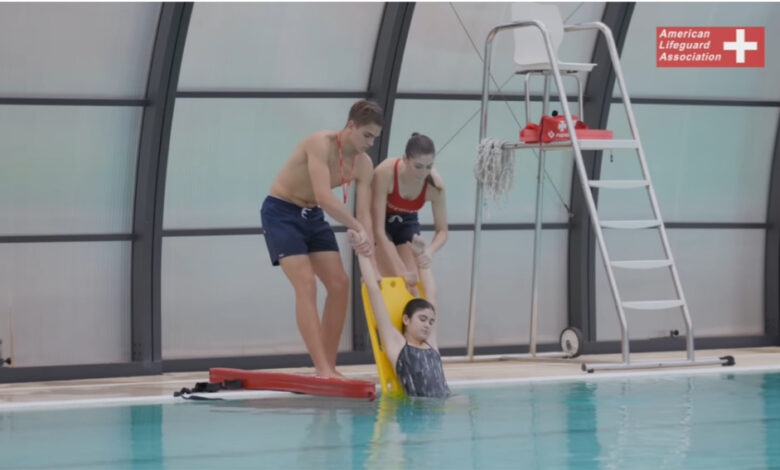The Surge in Summer Lifeguard Job Openings

As public swimming pools, beaches, and waterparks get ready for a season of intense use, the need for trained lifeguards rises throughout the United States every summer. Particularly in 2025, this demand has thousands of unfilled jobs advertised all across. To guarantee the safety of millions of swimmers and sunbathers, parks and recreation departments, hotels, resorts, and cities are aggressively hiring.
The lack of lifeguards has resulted in greater recruiting campaigns. Many businesses are providing significant signing and retention bonuses in addition to competitive hourly salaries, therefore making lifeguard work one of the most appealing summer jobs for students, teachers, and anyone looking for meaningful employment.
Benefits and Incentives
Cities and private businesses have increased incentives to solve staff shortages and draw more candidates:
- In addition to an hourly compensation of roughly $26, New York City lifeguards can earn a $1,000 incentive by staying through mid-August.
- Houston provides bonuses totaling $500 divided between the beginning and end of the summer; salary begins at $16 per hour.
- Maryland’s Ocean City offers beach patrol lifeguards a $500 sign bonus and a $250 housing subsidy.
- Phoenix: Including an initial $500 and a further $2,500 at the end of the season, lifeguards may earn up to $3,000 in rewards.
- With hourly pay ranging from $22 to $27, certified lifeguards operating at state-managed pools and beaches can get up to $750 in extra income in Massachusetts (DCR).
Some cities are even giving college credit for lifeguard employment; others have created “low-impact” lifeguarding jobs for those who could not qualify for conventional jobs, like surveillance of shallow pools.
Lifeguard training: First Essential Steps
All aspiring lifeguards have to undertake extensive training before setting foot on the beach or pool deck. Developing the abilities necessary to avoid accidents and respond successfully in an emergency depends on this training. Normally included in the curriculum:
- Water rescue methods
- CPR and First Aid certification
- Use of Automatic External Defibrillators (AED)
- Hazard identification and monitoring techniques
The places where the jobs are: Coast to Coast Possibilities
There are lifeguard job postings all over the country from busy city pools to beautiful oceanside pools. The major metro areas driving recruiting efforts include New York, NY; Houston, TX; Philadelphia, PA; Boston, MA; and Phoenix, AZ. The DCR is also hiring for a total of 81 swimming pools and an additional 24 pools in Massachusetts, including opportunities in Boston, Cambridge, and Revere Beach.
Lifeguards are also in demand at private resorts in the towns along the coastlines. Some resorts are popular summer destinations for water enthusiasts, so being a lifeguard can also be beneficial to get a rewarding job at a beautiful resort.
More than Just Monitoring Waters
Although lifeguards are the initial safeguards of preventing aquatic catastrophes, the job of a lifeguard includes many things beyond monitoring swimmers:
- Lifeguards must observe swimmers in distress, dangerous behaviors, or changes in environmental conditions for the possibility of quickly notice them.
- Early risk identification and intervention as required help lifeguards to prevent mishaps.
- Water Safety: Lifeguard Education Saves Lives
Aquatic safety starts on the foundation of thorough lifeguard training. It gives lifeguards the knowledge and abilities to control different settings including waterparks, swimming pools, lakes, beaches, and other natural surroundings. Training programs concentrate on:
- Responding to incidents caused by tides and currents
- Teamwork and excellent communication during crises
- Use of rescue equipment and personal flotation devices
Public education is also given top priority. Experts highlight the need to swim only in designated areas supervised by qualified lifeguards, knowing flag warning systems, and wearing appropriate safety equipment such as U.S. Coast Guard-approved life jackets, as seen in recent media appearances.
Lifeguard training: Saving Lives
Many groups have increased access to lifeguard classes to satisfy the rising demand for them. These courses are geared to be available to a broad spectrum of candidates, including instructors, community members seeking seasonal employment, and high school and college students. Some companies have internal courses or collaborate with local organizations to provide free or very low-cost training.
Apart from providing access to summer work, completing lifeguard courses imparts vital life skills—leadership, responsibility, teamwork, and the capacity to stay calm under stress.
Under the Spotlight: Expert Water Safety Guidelines
National interest shifts to water safety as summer approaches. Experts provide advice on how to be safe around water and are constantly mentioned in print and electronic media. On Memorial Day Weekend, for instance, Wyatt Werneth, National Spokesperson for the American Lifeguard Association, will appear on Good Morning America to impart critical water safety advice. He underlined how crucial it is to swim in watched regions, know the flag warning systems, and provide young swimmers with well-fitted life jackets.
Public awareness efforts depend on these expert opinions as they assist families and people in making educated choices before jumping into the water every summer.



